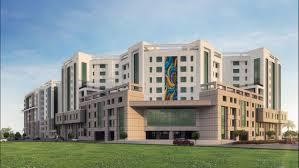The Indian government has made tremendous progress in achieving the 3As of healthcare – affordability, accessibility, and availability over the previous decade by instituting new changes in the medical education system. The Indian medical school system, without a doubt, requires these substantial reforms to meet future demand and improve educational quality in this sector. In addition, the reform contributes to greater openness, meritocracy, and expansion in India’s medical education. For example, to manage admissions into educational institutions, the reform established the National Eligibility Entrance Exam (NEET) for undergraduate students applying to medical school and the National Exit Test (NEXT) for postgraduate students pursuing postgraduate studies and receive licenses to practice medicine. Some of the other major reforms include the following.
NEW SPECIALIZATION
The promotion of family medicine as a technical specialty has been a major priority of the PG’s expansion, particularly under the National Board of Examination (NBE). Specialization in this discipline is currently available through Doctor of Medicine and Diploma programs. In addition, specialist family physicians will be produced in the postgraduate program in family medicine. The basic concepts of medicine, surgery, obstetrics, and gynecology are included in family medicine specialization.
AFFORDABILITY
There was no legislative system before the National Medical Commission (NMC) Act to regulate the fees charged by private colleges in India. As a result, several private institutions have been accused of overcharging fees, making them unaffordable for deserving students. Reforms have been implemented to make medical school more affordable for students who aspire to become doctors. Fees and other charges in 50 percent of seats in private medical institutions and deemed universities are regulated by the National Medical Commission (NMC) Act. In this context, the NMC is developing guidelines.
COMPETENCY-BASED MEDICAL EDUCATION (CBME)
For MBBS students, the Medical Council of India (MCI) created the internationally recognized CBME. CBME promotes students’ holistic development by implementing innovative educational initiatives to address language, communication, and computer skills deficiencies. Considering the country’s health demands, CBME aims to shift away from the curriculum that is content-based and moves toward one that is more practical. This will help students a lot in their careers in medicine.
IMPLEMENTING A DISTRICT RESIDENCY SCHEME
The goal of this initiative, which began in 2021, was to strengthen health services at the district level. Under this concept, postgraduate medical students would have to complete a three-month training program in district hospitals during their second or third year of study. This strategy aims to expose students to a wide range of situations in the district health system while simultaneously addressing the district hospitals’ medical staffing needs.
NEW DIPLOMA COURSES AND MANDATORY RESEARCH PROGRAM
The National Board of Examinations (NBE) has developed two-year diploma programs in eight subjects to address the shortage of specialists. Anaesthesia, Gynaecology & Obstetrics, Paediatrics, ENT, and Ophthalmology are among the specialties that have been chosen to satisfy the country’s public health needs. Along with that, NMC has one of its responsibilities to strengthen research. New regulations have been enacted that require all postgraduates and teachers to take an online Research Methodology course. The NMC will also aim to promote R&D in medical schools by enacting appropriate legislation.

Medical admissions, professional and clinical training, and academic and intellectual preparation are all aspects of educational reform that must be addressed. In addition to raising medical professional standards and implementing new medical education reforms, the system should develop new ideas to address the growing shortage of health professionals required to serve an aging population with lifestyle and lifetime illnesses to make the future a better place for everyone.














